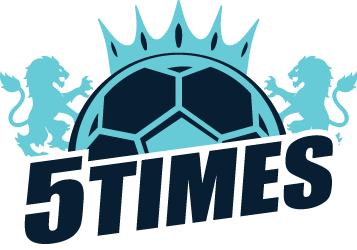Job Vacancy: Kit Manager at Bristol FC – Career Charts and Opportunities
What is a Kit Manager and their Role at a Football Club?

A Kit Manager is an integral part of a football club’s management team. They are responsible for managing all aspects of the club’s kit and equipment needs. This includes ensuring that the players have the necessary clothing and gear for training sessions and matches, as well as maintaining an inventory of all equipment. The role of a Kit Manager involves several key responsibilities. Firstly, they are responsible for ordering new kit and equipment when needed, ensuring that the club always has an adequate supply.
They also have the duty of distributing the kit to the players and coaching staff, making sure that each individual receives the correct items. Additionally, the Kit Manager is responsible for the day-to-day management of the kit and equipment. This includes ensuring that everything is clean and in good condition, as well as taking care of any repairs or replacements that may be necessary. They are also responsible for organizing and packing the kit for away fixtures, ensuring that nothing is forgotten.
What are the Requirements and Qualifications for the Kit Manager Position?
Experience in a football club environment is typically a requirement for the position of Kit Manager. This could include previous work as an equipment manager or in a similar role. Knowledge of kit and equipment management is also important, as the Kit Manager needs to understand the specific needs of the players and coaching staff.
Commitment and dedication to the role are essential qualities for a Kit Manager. They must be willing to work long hours and be available to cover all aspects of kit management, including ordering, organization, and distribution. Attention to detail and strong organizational skills are also important traits for this position.
How to Apply for the Kit Manager Vacancy at Bristol FC?
To apply for the Kit Manager vacancy at Bristol FC, interested individuals should complete an application form, which can be found on the club’s website. The application form will require applicants to provide their personal details, as well as any relevant experience or qualifications. Additional information for applicants may be available on the club’s website or included in the job description.
It is recommended that applicants thoroughly read and understand all instructions before submitting their application. Bristol FC is committed to safeguarding the welfare of children and young people, and expects all staff and volunteers to endorse this commitment. The successful candidate for the Kit Manager position will be subject to appropriate background checks and will be required to provide references.
Career Growth Opportunities for a Kit Manager
Working as a Kit Manager at Bristol FC can provide several career growth opportunities. Firstly, there is the potential for progression within the club. A successful Kit Manager may have the chance to take on additional responsibilities or move into a higher-level position within the club’s management team. There are also opportunities for Kit Managers in other football clubs.
As each club has its own kit and equipment management needs, experienced Kit Managers may be sought after by other clubs looking to improve their operations in this area. Furthermore, a Kit Manager may also have the opportunity to move into a position with a league or national team. These positions often come with increased responsibilities and a higher level of visibility within the football community.
Kit Manager at Bristol FC: A Key Role in the Club’s Success
The role of a Kit Manager is instrumental in the success of a football club. They have a direct impact on the performance and morale of the players and coaching staff by ensuring they have the necessary kit and equipment for training sessions and matches. In addition, the Kit Manager plays a vital role in ensuring smooth operations during fixtures and training sessions.
They are responsible for making sure that everything is in place and ready for the players and coaching staff, allowing them to focus on their roles without any distractions. Maintaining a well-organized kit and equipment system is also crucial for the smooth running of the club. The Kit Manager’s attention to detail and organizational skills help to prevent issues such as misplaced or damaged equipment, which could disrupt the team’s preparation and performance.
What Does A Kit Manager Do? Why Is He Needed?
A kit manager is an essential role for any team or organization, providing an organized and efficient system for managing equipment, supplies, and resources. A kit manager is responsible for knowing what items are needed for a team, storing and maintaining those resources, and making sure they are easily accessible. Having a kit manager can provide many benefits, from streamlining the distribution process and reducing costs to increasing team morale and productivity.
In this article, we will discuss what a kit manager does, why they’re needed, and how to become one. We’ll also provide some guidelines for effective kit management. So, if you’re looking for a way to make your team’s operations and resources more organized and efficient, read on to learn more about what a kit manager does!
What is a Kit Manager?
As a kit manager, you’re responsible for handling the organization, maintenance, and distribution of equipment and gear – critical for any successful team! That includes everything from sports uniforms and soccer balls to medical supplies and first-aid kits. You’ll need to make sure that all the equipment is kept clean and in good condition and that it’s all properly inventoried and organized.
You’ll also need to keep track of when and where the gear is needed, and be able to distribute it in a timely and efficient manner. You’ll also be responsible for managing any repair and replacement of equipment, as well as keeping up with any new equipment or gear that needs to be purchased. In short, a kit manager is an essential part of any successful team, making sure that all the necessary equipment and supplies are available and ready for use.
Responsibilities of a Kit Manager
A kit manager’s responsibilities are vital; they hold the key to team success! Primarily, they are responsible for ensuring the team is outfitted with the necessary equipment and apparel. This includes everything from uniforms and team apparel to balls and other sports equipment. Additionally, the kit manager often handles all the duties related to customer service and ordering, from tracking orders to ensuring timely delivery.
In addition to their direct responsibilities, they also need to stay up to date on any new trends in team apparel and ensure the team has the latest and most stylish options. Finally, they must also handle any repairs or replacements that may be needed on team apparel or equipment. It’s a big job, but when done properly it helps ensure the team has the best possible chance of success.
The Benefits of Having a Kit Manager
Having a kit manager ensures that you have all the necessary equipment and apparel to compete and stay up-to-date with the latest trends, giving you a competitive edge. A kit manager’s job is to make sure that the team’s uniforms and equipment are up to the highest standards and that all the items necessary for success are readily available. They also ensure that the team has a good relationship with suppliers, which can help to get the best possible discounts on apparel and equipment. Additionally, they can help with the logistics of transporting players and equipment to and from matches. Having a kit manager can also help to keep the team organized and focused on the task at hand. It’s their job to make sure that everyone has the right gear at the right time and that all items are accounted for.
By ensuring that the team is properly dressed and equipped, a kit manager helps to create a positive team dynamic and helps to minimize distractions. In addition, they can help to motivate and encourage players, which can result in improved performance. In summary, having a kit manager is integral to the success of a team. They can help to ensure that all the necessary equipment is available, that all team members are properly outfitted, and that the team remains organized and focused. With their help, teams can maximize their potential and have a competitive edge.
How to Become a Kit Manager
Do you want to stay ahead of the game and be the go-to person for all the team’s gear and apparel needs? Becoming a kit manager could be the perfect job for you! To get started, you’ll need to gain experience and knowledge of the sports industry. This includes having a good understanding of the different types of sports apparel, equipment, and accessories, as well as staying up-to-date on trends and regulations. Additionally, you’ll need to be organized and have excellent communication skills to effectively manage the team’s inventory. To become a kit manager, you’ll also need to have knowledge of the team’s budget and be able to manage it accordingly.
This includes tracking orders, negotiating with suppliers, and ensuring that all purchases are within the team’s budget. You’ll also be responsible for the upkeep and maintenance of the team’s apparel, equipment, and accessories, ensuring everything is kept clean and in good condition. Finally, you’ll need to be able to provide customer service to the team’s players and staff. By taking on the role of a kit manager, you’ll be an integral part of the team’s success. With the right skills and dedication, you can help the team stay ahead of the game and look their best.
Guidelines for Effective Kit Management
Staying organized and up-to-date on the latest trends and regulations is essential for successful kit management. Kit managers must have an understanding of what their team needs to do in order to stay competitive. They must also be able to stay on top of the latest trends in kit development and design, as well as the regulations and laws that govern them. An effective kit manager should create a clear plan for the team, and ensure that all members are following it.
They should also ensure that all team members are informed of any changes or updates in the kit, and that any necessary equipment is available. Additionally, kit managers should make sure that their team is properly trained and equipped for any task or challenge that they may face. Finally, kit managers should always be on the lookout for new trends and ideas that could help their team to stay ahead of the competition.
Conclusion of What Does a Kit Manager Do?
In conclusion, a kit manager is an essential role within a team or organization. They are responsible for the procurement, organization, and maintenance of necessary supplies, equipment, and materials. A kit manager can help ensure that teams are well-equipped for any task, and can help streamline the process of obtaining the necessary resources. Ultimately, having a kit manager can help to ensure that teams are working efficiently and effectively.










